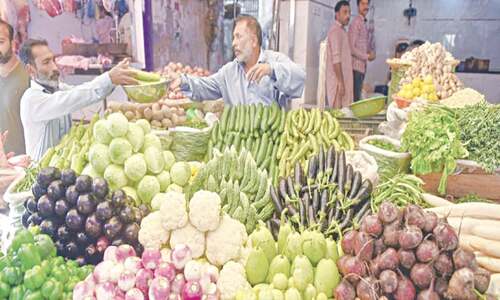KARACHI: Unprecedented onion exports fetched $210 million during July-April FY24 at the cost of inflation-hit consumers who paid record prices for the vegetable.
“Onion exports may soar to $250m by the end of the current fiscal year,” claimed All Pakistan Fruit and Vegetable Exporters Association Patron-in-Chief Waheed Ahmed, dispelling market impression that higher exports have caused a price flare-up in the country’s main staple food item.
Pakistani consumers paid Rs300-350 per kg for onion following the Indian export ban from Dec 8, 2023 to April this year. New Delhi lifted the ban in the first week of May, bringing down the national average price to Rs70-150 per kg.
“The price increase has nothing to do with the export shipments. It is the job of the price regulator to check fleecing of consumers by market forces,” Mr Waheed said, giving an example that “if the wholesale price of onion is Rs150 and retailers are charging Rs300, then exports cannot be blamed for local price hike”.
Overall exports of vegetables stood at 1.044 million tonnes fetching $371m in 10MFY24 versus 1.171m tonnes ($262m) in the same period last fiscal year. “This means that exports, including onion, had fetched an average per tonne price of $354 vs $233 in the above period, thanks to stable rupee-dollar parity from September 2023 onward.
“The share of onion in overall exports is 200,000-225,000 tonnes, while potato and other vegetables hold the rest,” Mr Waheed claimed.
Local traders also imported Iranian and Afghani onions to meet local demand, but this could not help reduce prices. However, the exporters fully exploited the situation created by the Indian ban to meet global demand.
The caretaker government raised the minimum export price (MEP) of onion to $1,200 per tonne from $750 in the second week of January. This decision required 100pc advance payments and aimed to prevent losses for the growers and bring down prices in the local market. However, the decision proved to be counterproductive for the end users.
“We need to carry out research to develop better varieties of onion with a longer shelf life to effectively control prices to compete with Indian onion having a shelf life of three to four months compared to one month storage time of local onion,” Mr Waheed said.
He said that for the first time, Pakistani onions are available in many countries, and the government is sending huge shipments to regular Far Eastern markets.
“Our onion exports can further grow if quarantine issues with Indonesia, the Philippines, Thailand, etc, are resolved,” he said.
Published in Dawn, May 23rd, 2024















































Dear visitor, the comments section is undergoing an overhaul and will return soon.